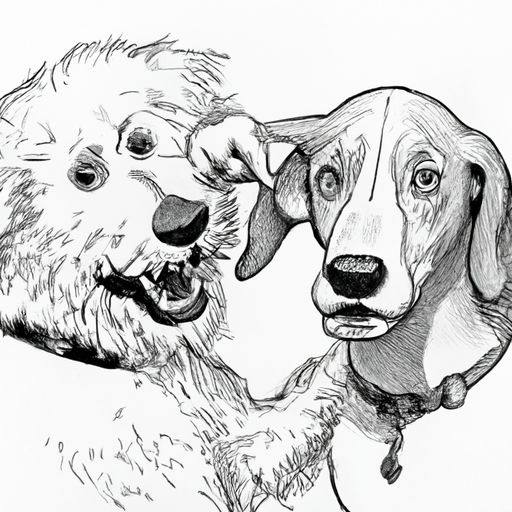As pet owners, we often find ourselves puzzled by the peculiar behaviors of our beloved dogs. One such behavior is when a dog persistently chews on the ears of its fellow canine companion. Is this a sign of affection, dominance, or is it a cause for concern? In this comprehensive guide, we will delve deep into the reasons behind this intriguing behavior, offer insights into how to handle it, and provide resources for further reading.
Table of Contents
1. Understanding Canine Behavior
2. Reasons Why Dogs Chew on Other Dogs’ Ears
3. How to Prevent and Manage This Behavior
4. FAQs
Key Takeaways
– Dogs chew on other dogs’ ears primarily due to playfulness, grooming habits, or asserting dominance.
– Understanding your dog’s behavior is crucial in determining whether it’s a harmless act or a sign of an underlying issue.
– Interventions may be necessary if the behavior becomes excessive or harmful.
Understanding Canine Behavior
Before we delve into the specific reasons why your dog might be chewing on your other dog’s ear, it’s essential to understand some basics about canine behavior. Dogs, much like their wolf ancestors, are social creatures. They engage in a variety of social behaviors to communicate, establish hierarchies, and bond with other members of their pack, which in the context of domestic dogs, includes both other dogs and human family members.
One resource that offers a wealth of information on canine behavior is The American Society for the Prevention of Cruelty to Animals (ASPCA). Here, you can find valuable tips and guidelines on understanding and managing your dog’s behavior.
Reasons Why Dogs Chew on Other Dogs’ Ears
There are several reasons why a dog might chew on another dog’s ear. Let’s examine the most common ones:
Playfulness: Dogs often chew on each other’s ears during play sessions. It’s a form of interaction that puppies learn while still with their littermates. The behavior may continue into adulthood, particularly among dogs that live together.
Grooming: Dogs often groom each other as a sign of affection or bonding. This grooming can include licking, nibbling, and yes, even ear chewing.
Asserting Dominance: Sometimes, a dog will chew on another dog’s ear as a way to assert dominance. It’s a non-aggressive way of showing who’s the boss.
For more on these behaviors, you might want to check out this article on canine play behavior, this post about dog grooming habits, and this discussion on dominance in dogs.
How to Prevent and Manage This Behavior
While ear chewing is generally a harmless behavior, it can lead to problems if it becomes excessive or if it’s causing distress to either dog. Here are some steps to manage and prevent this behavior:
- Monitor Play Sessions: Keep an eye on your dogs when they’re playing together. If the ear chewing becomes too rough or if the other dog seems uncomfortable, it’s time to intervene.
- Provide Alternatives: Give your dog plenty of chew toys to satisfy their chewing urge.
- Train Your Dog: Use positive reinforcement to train your dog not to chew on the other dog’s ear. Every time your dog starts to chew on the other dog’s ear, redirect their attention to a toy or treat.
FAQs
Why is my dog obsessed with my other dog’s ears?
Your dog might be obsessed with your other dog’s ears out of playfulness, grooming habits, or a way to assert dominance. However, it could also be a sign of an underlying health issue like ear mites or yeast infection in the other dog’s ears.
Is it normal for puppies to chew on each other’s ears?
Yes, it’s a common behavior among puppies. It’s part of their play and social interactions. However, if the chewing becomes too rough or if one puppy seems distressed, it’s important to intervene.
Should I stop my dog from chewing my other dog’s ear?
It depends. If the behavior is playful and both dogs seem comfortable, it’s generally okay to let them be. However, if the chewing is causing distress or injury to either dog, or if the behavior becomes obsessive, it’s time to intervene.
In conclusion, dogs chewing on other dogs’ ears is usually a harmless behavior rooted in play, grooming, or dominance. However, as a responsible pet owner, it’s important to monitor this behavior and intervene if necessary. Understanding your dog’s behavior is key to ensuring a healthy and happy coexistence. For more insights into your dog’s behavior, you could visit dog behavior explained.



